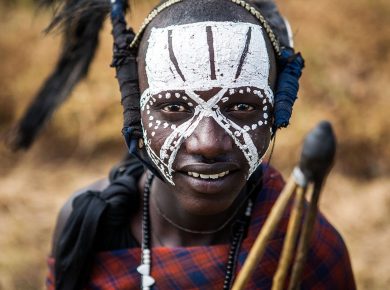Decolonizing Research
Decolonizing Research: Transforming Academic Methods with Indigenous Approaches 2025
Learn how to decolonize research methods by challenging Western academic assumptions. Explore Indigenous alternatives, ethical frameworks, and community-centered approaches.
Decolonizing Research: Transforming Academic Inquiry Through Indigenous Wisdom
Decolonizing research represents a fundamental shift in how knowledge is created, validated, and shared within academic and community contexts. This transformative approach challenges the colonial foundations of Western research methodologies while elevating Indigenous ways of knowing as legitimate and valuable knowledge systems.
Understanding Colonial Research Practices
Traditional Western research has historically extracted knowledge from Indigenous communities without consent, reciprocity, or benefit sharing. These practices reflect broader colonial patterns of exploitation and cultural domination. Colonial research typically positions Western knowledge as universal truth while marginalizing Indigenous epistemologies as folklore or primitive beliefs.
Characteristics of colonial research include:
Extractive Relationships: Researchers enter communities, gather data, and leave without ongoing commitment or benefit sharing. This mirrors historical resource extraction patterns that have harmed Indigenous communities for centuries.
Deficit-Based Frameworks: Colonial research often focuses on problems, pathologies, and deficiencies within Indigenous communities rather than recognizing strengths, resilience, and cultural assets.
Objectification of Participants: Indigenous peoples become objects of study rather than partners in knowledge creation. Their voices are filtered through Western academic interpretations and frameworks.
Institutional Control: Universities and research institutions maintain complete control over research processes, findings, and intellectual property, excluding community ownership and governance.
Principles of Decolonizing Research
Decolonizing research requires fundamental changes in researcher positionality, methodological approaches, and institutional practices. This transformation begins with recognizing Indigenous peoples as knowledge holders and experts in their own experiences.
Self-Determination: Indigenous communities control research agendas, methodologies, and outcomes. This includes determining what questions are asked, how research is conducted, and how findings are used and disseminated.
Reciprocal Relationships: Decolonized research emphasizes mutual benefit and ongoing relationship maintenance. Researchers contribute skills, resources, and advocacy while communities share knowledge and cultural insights.
Cultural Responsiveness: Research methods align with Indigenous cultural values, protocols, and ways of knowing. This may include incorporating ceremony, storytelling, land-based practices, and oral traditions.
Transformative Action: Decolonized research aims to create positive change for Indigenous communities rather than simply generating academic publications. Research outcomes should support community goals and priorities.
Methodological Innovations
Decolonizing research has generated innovative methodological approaches that honor Indigenous knowledge systems while meeting academic standards. These methods often integrate multiple ways of knowing and emphasize holistic understanding.
Sharing Circles: This method creates safe spaces for community members to share experiences and knowledge through structured dialogue. Circles honor traditional Indigenous governance and decision-making processes.
Photovoice: Participants use photography to document and share their experiences, with community members controlling narrative development and interpretation. This method centers Indigenous voices and perspectives.
Land-Based Research: Connecting research activities to traditional territories and cultural landscapes, recognizing land as teacher and knowledge source. This approach integrates environmental and cultural knowledge systems.
Storytelling Methodologies: Incorporating traditional narratives, oral histories, and contemporary stories as primary data sources. Stories convey complex cultural knowledge and maintain connection to ancestral wisdom.
Institutional Transformation
Decolonizing research requires systemic changes within academic institutions, funding agencies, and research organizations. These changes must address structural barriers and create supportive environments for Indigenous research approaches.
Policy Development: Institutions need policies requiring Indigenous community consent, benefit sharing agreements, and ongoing relationship maintenance for research involving Indigenous peoples or territories.
Faculty Development: Training programs help researchers understand colonial research history, develop cultural competency, and learn Indigenous methodological approaches.
Partnership Models: Universities establish formal partnerships with Indigenous communities, creating collaborative governance structures and shared decision-making processes.
Challenges and Resistance
Decolonizing research faces significant challenges within established academic systems. These include resistance to methodological innovation, funding restrictions, and entrenched colonial attitudes among some researchers and institutions.
Academic Validation: Indigenous methodologies may face skepticism from traditional academic review processes. Building acceptance requires demonstrating rigor while maintaining cultural integrity.
Resource Allocation: Decolonized research often requires more time and resources for relationship building and community engagement, challenging traditional funding models.
Institutional Inertia: Established academic structures may resist fundamental changes required for genuine decolonization.
Global Impact and Future Directions
Decolonizing research is expanding globally as Indigenous communities worldwide assert research sovereignty and academic institutions recognize the value of diverse knowledge systems. This movement influences policy development, educational curricula, and research funding priorities.
Future developments will likely include expanded Indigenous research training programs, institutional policy reforms, and international frameworks supporting Indigenous research rights. The ultimate goal remains transforming how knowledge is created and shared to support Indigenous self-determination and cultural revitalization.






